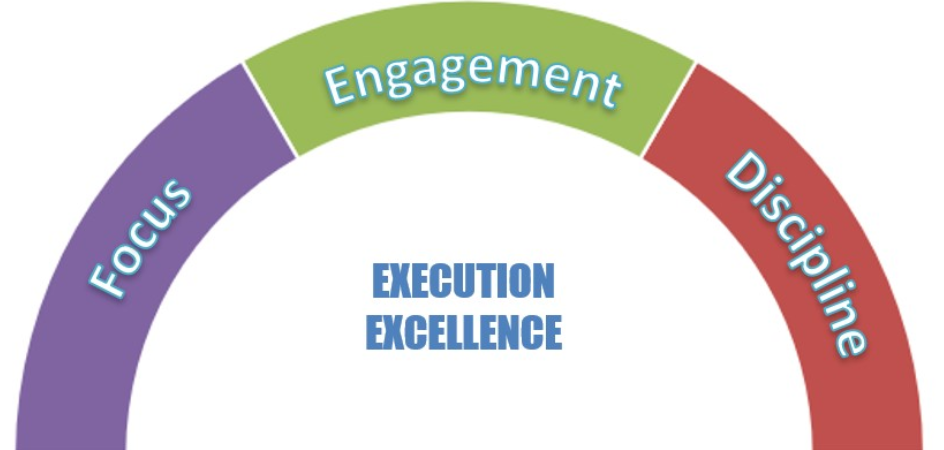
FED stands for Focus, Engagement and Discipline. These three ingredients are powerful indicators of the likelihood of organizations executing well against their most important goals, and achieving superior results. The equation is
Focused priorities X Engaged employees X Discipline = Superior Results
Organizations spend a lot of time identifying their most important goals, and developing plans to achieve them. However, very often, they are unable to deliver against their goals.
This may be due to external factors that are not controllable, such as market conditions. But often it is because of far more influence-able internal challenges that remain unaddressed. That’s because while managers can measure results, measuring the inputs that lead to results, e.g. focus, employee engagement and discipline, are harder to assess. The FED Quotient provides you that metric.
Measure your FED Quotient

Diagnostic
The FED Diagnostic is specific to an organization. We encourage organizations to include all those who impact the results of teams participating in the diagnostic, and in the SIMPLIFY process.
This enables you to get specific and actionable information about those areas in your organization that can be improved.

Rollout
The FED Diagnostic is administered as an email based questionnaire. It is emailed to each participant individually as a separate link to their questionnaire, and the results are recorded collectively.
We recommend our clients prepare the grounds to collect a representative volume of responses to get the best possible results.

Confidentiality
Information collected via the diagnostic is presented to the client organization in summary form only. They can view trends by team, level, region and any other cut they define at the start of the survey.
We do not share individual responses with the organization, and we do not share the results of a specific organization publicly.
Who can benefit?
FED can be extremely valuable for managers seeking independent, un-monitored feedback on how their teams perceive their work environment.
It provides great insights to managers who aim to improve specific areas of organizational or individual behaviour attributes that impact business performance. By collecting empirical information from large, cross-functional audiences within the organization or team, it can help managers identify, address and measure change.
The FED is a great reality check. With its approach of using open and close ended questions, FED can be useful in sifting perception from reality. For example, individuals may think they are clear about their organization’s strategy, but when asked to articulate the strategy, they may tell you something completely different from what it actually is.
